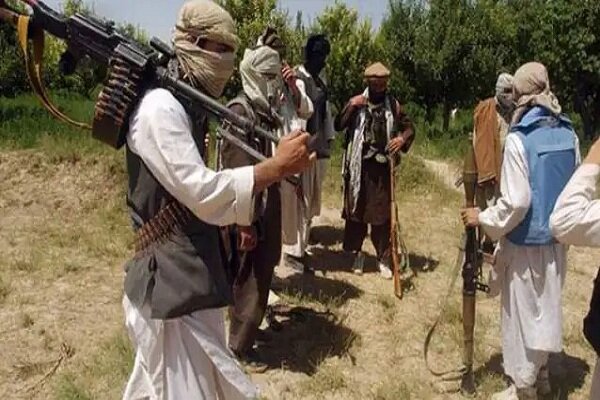Recent wave of terror attacks in Pakistan is a litmus test for Islamabad-Beijing ties

A recent report published by the United Nations Security Council (UNSC) has alarmed both Islamabad and Beijing. The report confirms the presence of 6,000 insurgents of the banned militant group Tehreek-i-Taliban Pakistan (TTP) in Afghanistan.
In addition to revealing that TTP maintains ties with the Afghan Taliban, it adds that there are hundreds of anti-Beijing Muslim radicals inside war-torn Afghanistan. TTP’s links with the Afghan Taliban do not come as a surprise because both militant groups are ethnically Pushtuns and ideologically aligned, both stress the implementation of an intolerant version of Sharia and more importantly, they both have once pledged their loyalty to Mullah Omar. But the possibilities of anti-Beijing militants establishing ties with other insurgents in Afghanistan can have serious repercussions for Islamabad-Beijing ties.
The optimism brought about by a marked reduction in terrorist incidents in the wake of stringent counter-terrorism efforts taken in recent years seems to be eroding. It can be ascertained from the fact in 2013, there were nearly 4000 terrorist attacks and 2020 saw 319 attacks, a nearly tenfold decrease. This year, however, there has been a gradual uptick in the violence with 230 terrorist incidents so far. This means violence is picking up in Pakistan.
The regrouping of Tehreek-e-Taliban Pakistan (TTP), one of the most malignant terror outfits in the history of Pakistan, is believed to be a major concern for the policymakers in Islamabad. There is a probability of TTP joining ranks with anti-Beijing insurgents as one of the many terror attacks claimed by TTP, the Serena Hotel explosion in Quetta in April remained the deadliest one, so far, where Chinese ambassador Nong Rong was reportedly the target. It is also feared that Chinese citizens and interests including project sites could be on the TTP’s hit list. In May 2017, a Chinese couple was abducted from Quetta and later killed by Islamic State terrorists. A recent attack on a bus carrying Chinese nationals to the Dasu hydropower project –being built with financial and technical cooperation of China– in Khyber Pakhtunkhwa (KPK) province is again a grim reminder of the vulnerability of Chinese citizens and project sites at the hands of terrorist outfits.
Predictions about a possible resurgence of TTP are materializing as the Afghan Taliban gain ground in neighboring Afghanistan after the U.S. withdrawal. It is feared that many terrorists can cross into Pakistan in the guise of refugees as the Afghan turmoil is likely to linger on. The TTP- affiliated terrorists, emboldened by the rise of the Afghan Taliban, may find their way back into the formation of an intimidating force against Pakistan, creating new challenges for the Islamabad-Beijing ties, particularly the building of the China-Pakistan Economic Corridor (CPEC).
CPEC is not under a threat by different anti-Pakistan and anti-China insurgents alone. The U.S. and India, two major rivals of China, also continue to be skeptical of the CPEC projects and other plans in Pakistan. Washington has time and again lambasted CPEC as a non-transparent project, and Delhi, a regional adversary of Beijing, believes that it infringes Indian sovereignty.
Potential challenges to China’s Belt and Road Initiative (BRI), which is a flagship project of Chinese economic development in the 21st century, can have regional and global repercussions. The landmark program of investment in infrastructure is broader in scope than the Marshall Plan of the U.S., which was proposed by the former U.S. President Harry Truman in 1948 to rebuild Europe in the aftermath of the Second World War.
A question arises why China and its interests could be a primary target of TTP? A possible answer to this question can be traced back to the siege of Islamabad’s Lal Masjid (Red Mosque) in July 2007. Many believed that then-President Pervez Musharraf was pressured by China to use force against the administration of the mosque. Western media had also tried to develop a connection between the Lal Masjid operation and an alleged Chinese role played in it. In its response, TTP was established in December 2007, with an eight-point charter, emphasizing the enforcement of Sharia law in Pakistan, to launch jihad (holy war) against the foreign troops in Afghanistan, and to carry out “defensive” jihad against Pakistan military.
The U.S. withdrawal, along with Indian and Afghan subterfuges, can slow down CPEC-related projects. An eminent Chinese scholar Wang Shida has also forewarned that a systematic attempt to stop the smooth functioning of CPEC can be underway in the wake of the resurgence and reunification of multiple regional and sectarian extremist outfits into TTP. It is the need of the hour for both Pakistan and China to redouble their efforts to protect their interests, particularly CPEC, from the machinations of both regional and global adversaries.
Mobeen Jafar Mir is an Assistant Researcher at Islamabad Policy Institute (IPI). He is a graduate of National Defence University, Islamabad.
